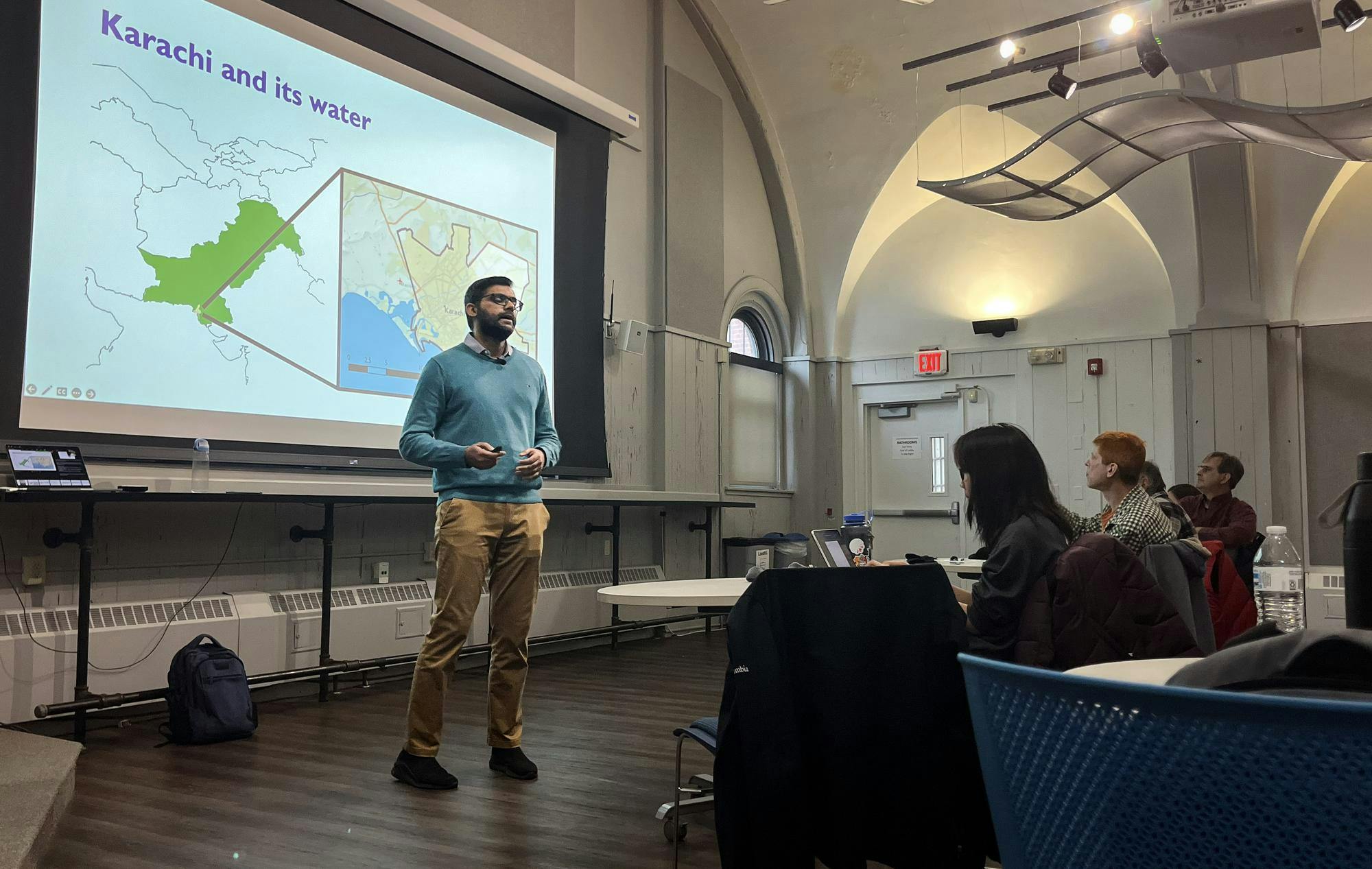Hassaan Khan, assistant professor in Tufts’ Department of Urban and Environmental Policy and Planning, spoke at a Hoch Cunningham Environmental Lecture on Thursday about the intricate water challenges in Karachi, a major city in Pakistan.
Karachi is reliant on the Karachi Water and Sewerage Board as the singular water utility. KWSB faces multiple hurdles in the provision of this essential resource due to the city’s geographical location, infrastructure pitfalls and the utility’s financial constraints.
“Forget about investing in the system to improve performance. [KWSB] is unable to even maintain the system, they rely on federal and provincial subsidies to pay their salaries, which means they’re in this vicious downward spiral. So because of their low revenues, they’re unable to improve their services,” Khan said.
Khan raised skepticism regarding the prevailing narrative of “water shortages” in Karachi. Citing many published articles on Karachi’s water crisis, Khan explained that a “myopic focus” on water scarcity contributes to a continuous cycle of water-related issues in Karachi.
“[This narrative of water shortages] focuses attention on the materiality of the system,” Khan said. “Essentially what that means is … build a pipeline and pour some concrete to solve all your challenges. … This convinces policymakers and water managers to sign on to debt-laden infrastructure that ends up really serving only a minority of citizens."
To uncover the root of Karachi’s water issues, Professor Khan directed two studies to shed light on the ground realities.
Study one involved the implementation of cost-effective flowmeters in households, intending to utilize machine learning tools to develop models to project water use. This study revealed results that not only diverged from previously calculated estimates but also demonstrated some considerations of the residents that weren’t taken into account prior.
“Most of the households used significantly less water on a per capita basis compared to the assumed usage that the water utility has [estimated],” Khan said. “More than half of Karachi lives in informal settlements, and in these informal settlements, they’re not showering using shower heads, they’re collecting water in different storage containers and using water out of those. No meter can get to that information.”
The second study zoomed in on the Lyari neighborhood, offering a microcosm of Karachi's water issues through surveys that quantified various statistics related to water usage and satisfaction. Khan’s team found that, even when the water supply remained constant, the households’ water “sufficiency” drastically shifted with seasonal changes in demand.
“Statistically … the water supply Lyari receives in the summer is about the same as the water supply it receives in the winter,” Khan said. “But because demand in the winter goes down, now a lot more people describe their supply as being sufficient.”
The implications of the studies challenge the need for large water infrastructure projects, calling for a reevaluation of how resources are allocated and which infrastructure projects are prioritized.
Concluding the talk, Khan emphasized the importance of adapting research methodologies to suit local dynamics and acknowledged the hard work of undergraduate researchers on the project. Next spring, Khan will be teaching a new course cross-listed in the UEP and environmental studies departments, “Water: Science, Society, and Policy.” This course promises a comprehensive exploration of water's role in the environment, social conflict and public planning.






